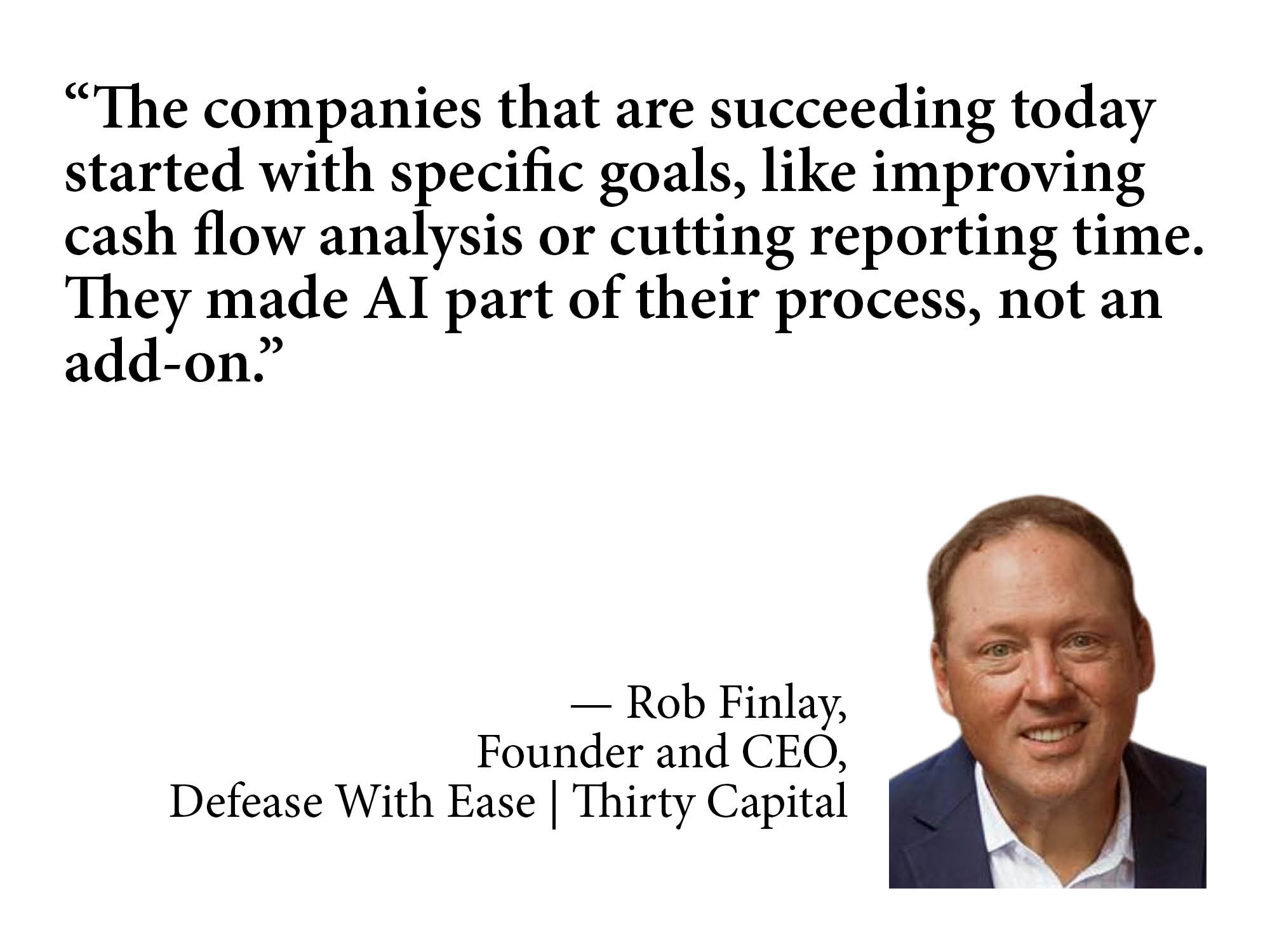C
ommercial real‑estate is undergoing a major shift. For years the hurdle was locating data; today the real challenge is deciding how to use it. Artificial intelligence is moving the conversation from “should we use AI?” to “how can AI actually improve outcomes?”
Rob Finlay, founder and CEO of Defease With Ease (Thirty Capital), and Trevor Albarran, VP of product at Lobby AI, discuss how AI is reshaping decision‑making in CRE, what early adopters have discovered, and what executives should focus on next.
**The biggest opportunity for CRE leaders**
Rob says AI is the most powerful tool available to real‑estate executives. It frees principals to focus on strategy, team motivation, and high‑level decisions while handling the heavy lifting at low cost. In his early career he was paid to act; now he is paid to think, and AI amplifies that shift.
**What early experiments revealed**
A recent study found that 90 % of CRE firms have tested AI, yet only a small fraction achieved their goals. The problem isn’t the technology but the approach. Many treated AI as a side project, experimenting without a clear business problem. Successful companies set specific objectives—improving cash‑flow analysis, cutting reporting time—and integrated AI into their core processes. Executives often delegate AI initiatives to staff wary of replacement; while AI won’t replace them, it will replace those who don’t learn to use it.
Trevor notes that AI already performs 80 % of the analysis work most teams spend a week on. The failure lies in execution: treating AI as a novelty rather than a transformation. Progress comes when firms define measurable problems tied to revenue or risk and embed AI directly into the workflow that owns the outcome.
**Purpose‑built AI versus generic models**
Generic AI delivers about 10 % of the value, useful for surface tasks like summarizing or rewriting. CRE, however, demands deeper analysis—underwriting, debt sizing, rent‑roll normalization, entity structures, waterfall calculations, lender packages. Purpose‑built AI combines proprietary data (rent rolls, loan documents, T12s, budgets, entity records, historical performance) with agents trained on CRE workflows. This turns AI from a “clever assistant” into a true back‑office partner, enabling executives to trust outputs for decision‑making rather than just summaries.
**Effective adoption in practice**
Rob emphasizes starting with small wins and increasing utilization until AI becomes second nature. Adoption often follows a hockey‑stick curve: slow start, then rapid uptake once teams use AI strategically—engaging, strategizing, problem‑solving. Trevor adds that the first milestone is shifting perception: treating AI as a thinking partner, not a search bar. When teams move from pasting prompts to conversing about capital stacks, DSCR constraints, lease rollovers, and budget variances, utilization spikes automatically.
**Impact on relationships with lenders, investors, and operators**
AI equips executives to enter any conversation—lenders, investors, or internal teams—fully prepared with answers or the right questions. It levels the playing field, granting operators the same clarity and preparedness that institutional players historically enjoyed. The biggest shift is informational parity.
**New skills for CRE leaders**
Rob argues AI frees leaders to think strategically again. The focus shifts from learning technical skills to asking sharper questions, interpreting insights, and making faster, smarter decisions. Trevor agrees: communication is key—both with people and with AI. Leaders need not understand LLM internals; they must craft precise queries that improve response accuracy and translate AI insights into actionable direction for their teams. Data matters only when it can be communicated to enhance performance.
**What executives should keep in mind**
Trevor stresses balance: combining human experience with machine precision. Those who thrive will allocate more time to strategy, judgment, and scenario analysis—tasks CRE leaders wish they had more time for. Rob adds that the next generation of leaders will succeed by turning information into intelligence. Winning won’t come from gathering more data or adding tools, but from making smarter decisions faster and with greater confidence.
Defease With Ease (Thirty Capital) is a content partner of REBusiness. For more information, click here.















